MY DAY AT OL PEJETA
I arrive at the Ol Pejeta Conservancy — an impressive place.
It’s a private, non-profit wildlife sanctuary and home to Kenya’s highest concentration of wildlife. It’s also the largest black rhino sanctuary in East Africa, making Ol Pejeta a key player in protecting one of the world’s most endangered species.
Together with Kenya Wildlife Service (KWS), they have created an elaborate security system at the Conservancy, which combines rhino patrols, armed teams, tracker dogs, aircrafts, cattle herders and local communities, and even an electrified fence that surrounds the entire perimeter of this 90,000 acre sanctuary!
Rhino patrolling is no joke- it involves walking for hours on end, several times a day, until every last rhino is spotted at least once every three days. The rhino patrollers know each and every rhino by name and sight, and if they can’t find one during their daily patrol, then they use a plane to patrol the entire conservancy until all rhinos are accounted for!
However, poaching has become such a serious problem in East Africa, that last year alone, Ol Pejeta lost five of their 88 rhinos to poachers, which has been their greatest loss in twenty years. Ol Pejeta and the KWS have had to step up their game to defeat poaching, and some members of the security team undergo intensive training programs to sharpen their surveillance skills.
As you can imagine, protecting rhinos from illegal poaching is not only time intensive, but also expensive! Richard Vigne, the CEO of the Ol Pejeta Conservancy, believes that the public and local communities should play an important part in protecting rhinos and wildlife in general. That’s where tourists, like me, can help out in a big way.
Ol Pejeta opens its doors to visitors who come for safaris or to volunteer with rhino patrolling. The revenue generated by tourists and volunteers is what fuels Ol Pejeta’s conservation efforts, and in essence, what keeps black rhinos safe.
Did I meet any rhinos, you may wonder? Stay tuned!

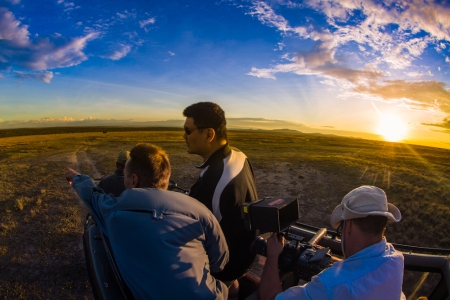
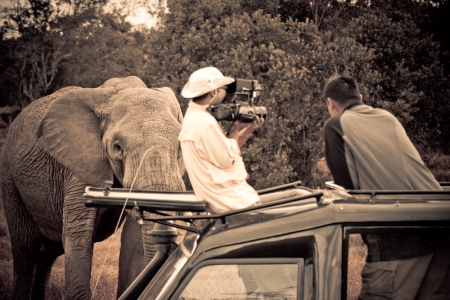
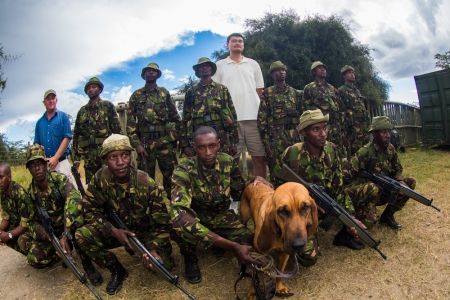
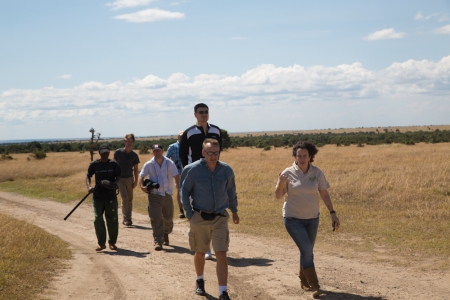
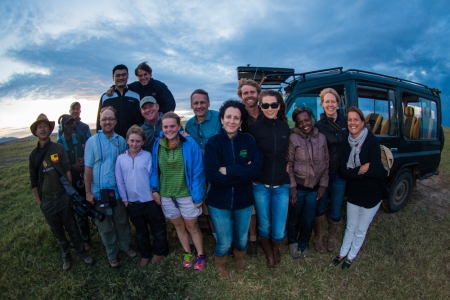
I cannot believe I am writing to Yao Ming! (am I really?!)
But I would like to share this:
Did you know that China and India are the world’s greatest consumers of palm oil? Palm oil is a seemingly “green” oil used in cooking (sometimes called “vegetable oil”); in most processed foods (chips, fried foods, cookies, cakes, desserts, chocolate, ice cream, cereal, McDonald’s/KFC/fast foods, etc.); and in soaps, detergents, toothpastes, & shampoos (the key ingredient, sodium lauryl sulfate, is made from palm oil).
However, palm oil has huge negative environmental impacts. Palm oil causes massive destruction of rainforests and biodiversity as it acquires vast areas of land to build monoculture palm plantations. This Palm oil-driven deforestation then leads to the release of massive amounts of carbon dioxide (initially stored in the trees of rainforests) into the atmosphere. Thus, palm oil agriculture largely contributes to global warming.
The small country of Indonesia, the world’s largest exporter of palm oil, is the 3rd largest carbon emitter in the world! Because of the massive amounts of carbon dioxide released from forests cleared to build palm oil plantations! Indonesia has the highest yearly rate of deforestation in the world (2 million hectares of forests are cleared per year). Every hour, forests covering the area of 300 soccer fields are cleared to build palm oil plantations!
Palm oil is the reason that the Sumatran rhinoceros (only rhino species left in Asia) and the Sumatran tiger are nearly extinct; and that Orangutans are critically endangered (orangutan population has declined ~50% in past ten years; world population of wild Orangutans is under 20,000). These animals’ are killed as their natural habitats (forests) are cleared to build palm oil plantations, and if they survive & wander onto plantations in search of food, they are viewed as pests and killed. Could you imagine a world without rhinos, tigers, & Orangutans for your children or grandchildren??
Obviously, it’s impossible to ask humans to stop using soaps, detergents, and shampoos. But we, humans, can and should stop consuming palm oil in processed foods and as a cooking oil. If we stop consuming palm oil, there will be no driving force for palm oil-related deforestation & biodiversity loss.
Palm oil is largely used in processed foods and as a cooking oil, simply because it is cheap. But the truth is: palm oil is high in saturated fats and very UNhealthy.
So I would like to ask you, Mr. Yao:
Could you call to attention the destruction that palm oil causes (global warming, deforestation, & loss of biodiversity) and encourage the public to stop purchasing products (such as processed foods & cooking oil) containing palm oil??
Thank you for reading this very long post:)
-Lila
August 13, 2012 at 1:59 pm
Mr Yao Ming, How wonderful, you have come to Africa to see for yourself.I think you are brave as well, for all poached ivory goes to..China and 50% of the rhino horn as well. In South Africa people are desperate, so many rhinos poached, calves killed as well this year already 323 animals died!
Another sad fact is where Chinses workers come ALL wildlife disappears..they eat it , now cats and dogs also disappear.I really feel sad to tell you the Name of China has been covered in blood, animal blood. Many people believe China is a very , even utmost barbaric country.Every tusk is a dead elephant. I hope you will visit the David Sheldrick foundation to see how they care for orphaned elephants, many die for grief, they saw their mother being slaughtered.Elephants are very sensitive creatures.
So I wish you strenght, I also hope you will see how very special Africa is, the wildlife should not become extinct. God bless you,
Most respectfully,
Mrs Marjolijn Joosten.
August 14, 2012 at 1:21 am
Dear Yao Ming,
Your visit to the rhino sanctuary is so important (and so wonderful) because, as you know, China is the largest importer of rhino horn for misguided use as an aphrodisiac. I hope that you will carry home to China the message that these highly endangered and marvelous animals must be nurtured and protected and not killed and exploited for useless potions based on superstition. Thank you for all that you can do to help educate people about the importance of taking care of our precious wildlife.
Best regards from France,
Linda
August 14, 2012 at 2:53 am
Beautiful work you’re doing! I’m wondering why they can’t attach GPS to the rhinos to keep exact track of them? Than they could track them from a computer at all times. Thank you for sharing your experience and making this very important documentary! I sponsor several orphans at The David Sheldrick Wildlife Trust and you are all heroes for doing this work to help save the beloved wild animals.
August 15, 2012 at 7:09 pm